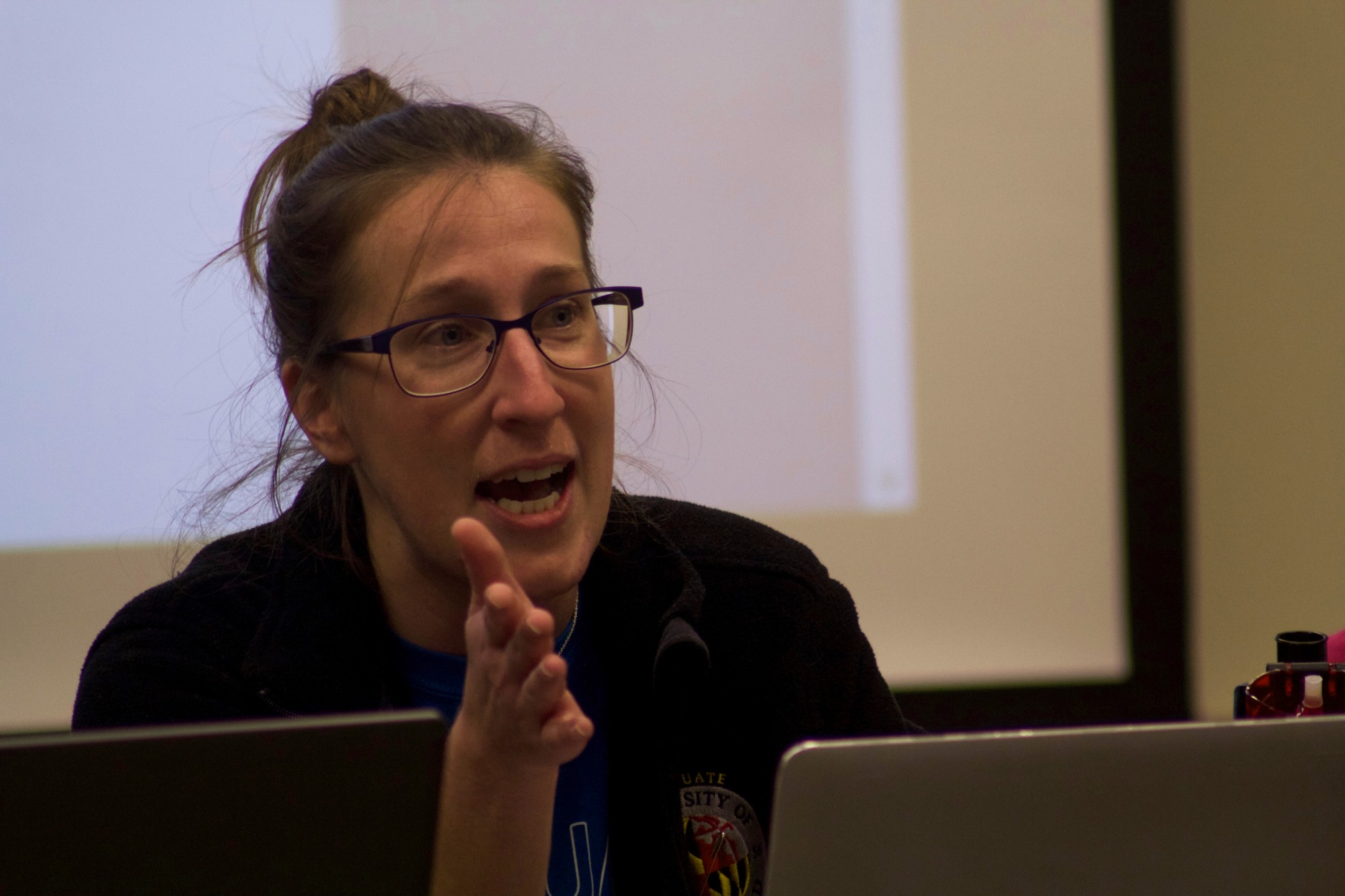University of Maryland GSG President Stephanie Cork submitted her formal resignation on Friday, with her last day coming on Monday, she wrote in an email.
Cork will serve as Graduate Student Government president and as a graduate assistant in Stamp Student Union until Monday. Legislative Affairs Vice President Adria Schwarber will take Cork’s place until a new president is elected Dec. 1, Cork wrote.
Cork, a kinesiology doctoral student, said she is resigning for personal and political reasons. She said it’s been difficult to make progress on her dissertation while serving as GSG president.
“This is a lot,” Cork said. “It’s more work than I anticipated.”
Her resignation comes after the GSG voted on Nov. 3 to launch an impeachment investigation into the president on the grounds of potential misuse of the group’s funds. Financial Affairs Vice President Devin Scott found the fiscal 2017 budget had been overspent by roughly $30,000 after Stamp’s Student Organization Resource Center gave him access to the files.
Cork previously told a Diamondback reporter she planned to resign on Nov. 3 but did not do so.
[Read more: UMD Graduate Student Government President Stephanie Cork plans to announce her resignation]
The GSG’s Budget and Finance Committee found several transactions that had been made without the assembly’s approval. About $6,000 had been spent on a disability summit, and about $12,000 had gone toward a salary increase for the director of operations.
In 2015, the GSG had more than $86,000 in its reserve accounts. The group planned to trim this number down to the “best practice” amount of $17,000 by spreading out additional spending over the years, Scott said.
The GSG planned to spend about $15,000 more from the account in each year from fiscal 2016 to 2019, and an additional $11,000 in 2020, in addition to the roughly $115,000 it receives each year in student fees. Now, the GSG will not have funds from that account to spend in fiscal 2019 or 2020, and it will have less money than expected for fiscal 2018, Scott said.
The GSG Governance Committee had planned to present its findings from the investigation with a recommendation at the Dec. 1 assembly meeting, where members would have voted to proceed or terminate the impeachment proceedings.
“It’s been a trying experience for the GSG Executive Board, and while all this is going on, we’ve still been doing the work that we’ve always been doing,” said Katie Brown, the GSG’s public relations vice president. “We’re excited to keep doing the stuff that we’re doing, and anything that allows us to do the work that we joined GSG to do is a positive.”
After GSG officials announced the impeachment investigation of Cork, she responded with a motion to review the Governance Committee and launch an impeachment investigation of Scott and Schwarber, alleging collusion against her.
Cork wasn’t permitted to address the assembly and submit her resignation during the Nov. 3 meeting, she wrote in an email. She added that she had notified the Executive Board of her intention to resign in mid-October.
Brown said nobody stopped Cork from formally making a motion to resign.
“Instead, she used whatever time remaining where she might have been able to do that to, in my opinion, bring baseless allegations against [Scott] and [Schwarber],” Brown said.
While Brown was aware of Cork’s original intention to resign in January 2018, she said she didn’t know Cork was going to resign before that date. Based on Cork’s original decision, the GSG had planned to hold a mid-term election on Dec. 1, where the assembly would vote on a new president with a secret ballot.
“We’re going to move ahead with that as we always were,” Brown said.
The assembly will also vote on a budget at the Dec. 1 meeting. Scott is working with the Budget and Finance Committee to find what areas they need to cut to craft a balanced budget, Brown said.
During Cork’s tenure, the GSG has helped host town halls on sexual assault and racial issues, passed legislation calling on the administration to recognize Indigenous People’s Day and fought against a $125 per-semester fee for new international students.
“All I try to do is listen to grad students and make sure their voices are heard,” Cork said.



